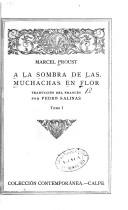“Las paradojas de hoy son los estereotipos de mañana.”
Original: «Les paradoxes d'aujord'hui sont les stéréptypes de demain».
Fuente: [Gaborit], Pascaline (en francés/inglés). Genre, temps sociaux et parentés, p. 10. Editions L'Harmattan, 2008. ISBN 9782296194830. https://books.google.es/books?hl=es&id=N7h-hTFXIroC&q=demain#v=snippet&q=demain&f=false En Google Books. Consultado el 13 de agosto de 2019.

